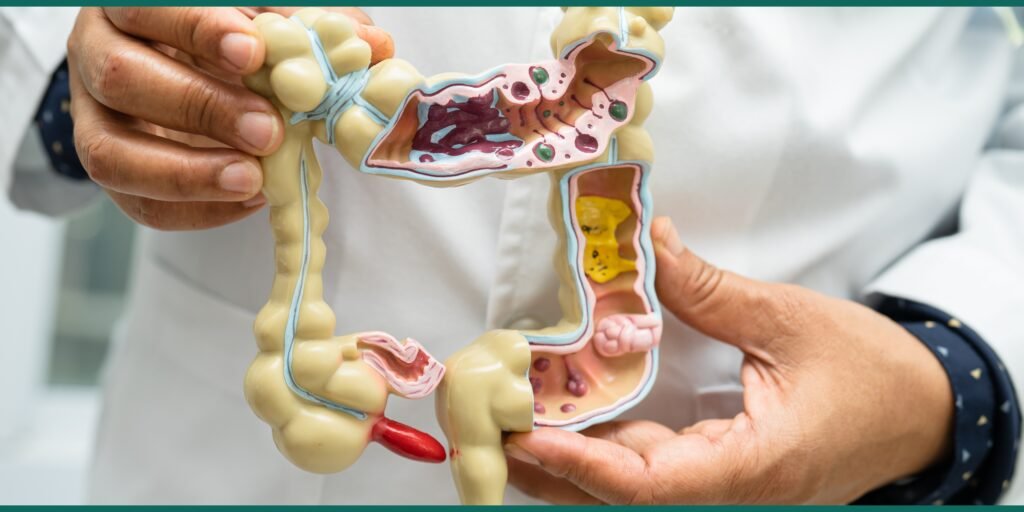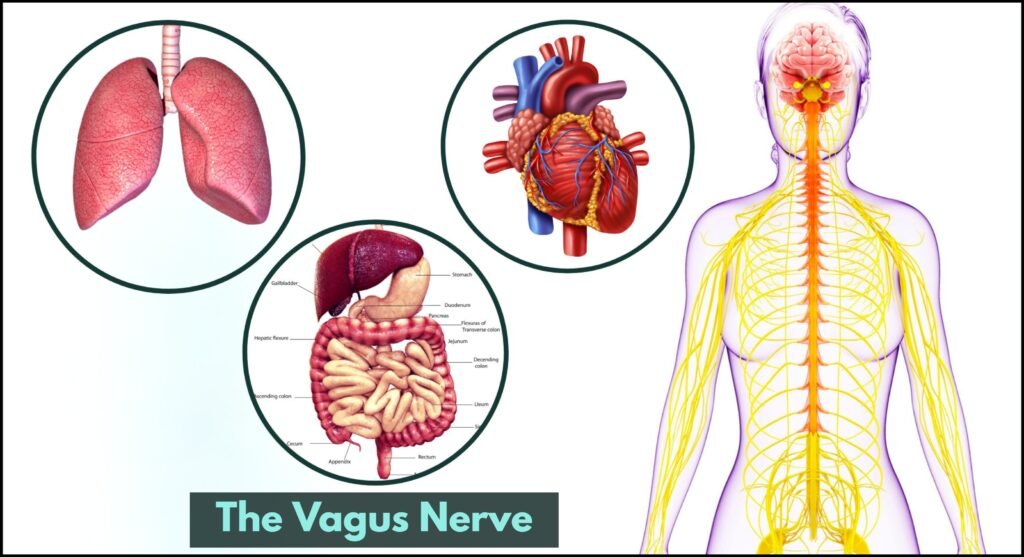The 50+ Guide to Gut Health: Nourish Your Body, Mind, and Immunity

Last Updated on June 27, 2025 by George
Your gut health becomes increasingly important as you enter your retirement years, and recent research reveals just how powerful this connection truly is. Scientists now understand that the composition of your gut microbiome changes throughout life, with significant shifts occurring as you age, making it crucial to take proactive steps to maintain digestive wellness.
Think of your gut as your body’s command center—it’s not just about digestion anymore. This complex ecosystem of beneficial bacteria influences everything from your immune system to your mood, energy levels, and even how well you sleep. For those over 50, understanding and nurturing gut health can be the key to maintaining vitality and independence for years to come.
In this comprehensive guide, you’ll discover why gut health matters more than ever during your mature years, how to recognize the warning signs that your digestive system needs attention, and practical strategies that can make a real difference in how you feel every day. We’ll explore the latest research on probiotics and prebiotics, share simple dietary changes that pack a powerful punch, and reveal how managing stress can transform your digestive health.
Whether you’re dealing with uncomfortable bloating, unexplained fatigue, or simply want to optimize your health for the road ahead, this article provides evidence-based solutions that are both practical and achievable. You don’t need to overhaul your entire lifestyle—small, consistent changes can yield remarkable results.
Ready to discover how supporting your gut can enhance your golden years? Let’s dive into the fascinating world of digestive wellness and unlock the secrets to feeling your absolute best.
Could You Use a Gut Check?
For the 50+ age group, understanding and supporting gut health is essential. If you’re experiencing frequent bloating, unexplained fatigue, skin issues, food sensitivities, or mood swings, it might be time for a “gut check.”

Prefer to Listen than read?
For those over 50, certain signs might indicate it’s time to pay closer attention to your digestive health. Are you experiencing frequent bloating that makes your favorite clothes feel uncomfortable? Do you find yourself feeling inexplicably tired even after a full night’s sleep? Have you noticed your skin acting up in ways it never did before?
These seemingly unrelated symptoms could all point to imbalances in your gut microbiome. Rather than dismissing these issues as inevitable parts of aging, consider them valuable signals from your body—signals that can guide you toward better health and increased vitality.
Why Gut Health Matters More After 50
As we age, several factors can compromise gut health:
- Slower Digestion: Your digestive system naturally becomes less efficient over time. Food moves more slowly through your intestines, which can lead to uncomfortable constipation or bloating. This slower transit time also affects nutrient absorption, potentially leaving you feeling less energetic than you’d like.
- Changes in Microbiome Composition: Current research has identified specific beneficial bacteria, such as Akkermansia and Odoribacter, that are associated with healthy aging and longevity. However, the diversity of gut bacteria often decreases with age, which can compromise both digestion and immune function.
- Weakened Immunity: Approximately 70% of your immune system resides in your gut. As your natural immunity shifts with age, maintaining a healthy gut microbiome becomes even more crucial for protecting against illness and supporting overall wellness.
- Medication Impact: Many medications commonly prescribed for age-related conditions—including antibiotics, pain relievers (NSAIDs), and acid-reducing medications—can significantly disrupt the delicate balance of gut bacteria. This disruption can create a cascade of digestive issues that affect your quality of life.
Maintaining a balanced gut microbiome becomes crucial for managing these challenges and preserving overall vitality.
Signs You May Need a Gut Check
Your body has sophisticated ways of communicating when your digestive system needs support. Watch for these important indicators:
- Frequent Digestive Issues: Ongoing bloating, gas, irregular bowel movements, or abdominal discomfort shouldn’t be accepted as normal parts of aging. These symptoms often indicate an imbalanced microbiome that can be addressed with targeted interventions.
- Unexplained Fatigue: When your gut isn’t functioning optimally, nutrient absorption suffers. This can leave you feeling fatigued or mentally foggy, even when you’re eating well and getting adequate sleep.
- Skin Problems: Your skin often reflects your internal health. New rashes, persistent dryness, or inflammatory conditions like eczema can be linked to gut inflammation and may improve with digestive support.
- Food Sensitivities: Suddenly developing reactions to foods you’ve always enjoyed can signal compromised gut barrier function. This “leaky gut” condition allows undigested food particles to trigger immune responses.
- Mood Swings or Anxiety: Research confirms the gut-brain connection is well-established, with gut health directly influencing mood and cognitive function. Unexplained anxiety, mood swings, or depression may be related to gut microbiome imbalances.

Strategies to Improve Gut Health
Improving gut health doesn’t require a complete lifestyle overhaul. Simple, consistent changes in diet and daily habits can yield significant benefits.
1. Focus on Your Diet
What you eat directly shapes your gut microbiome.
- Fibre-Rich Foods: Include whole grains, legumes, fruits, and vegetables. Fibre promotes the growth of beneficial gut bacteria and supports digestion.
- Fermented Foods: Incorporate yogurt, kefir, kimchi, sauerkraut, or miso to introduce probiotics—live bacteria beneficial for gut health.
- Diverse Diet: Eat a rainbow of fruits and vegetables. Different colors mean different phytonutrients, which support a diverse microbiome.
- Limit Processed Foods: Reduce sugary, fried, or highly processed foods, which can harm gut bacteria.
2. Stay Hydrated
Adequate water intake is vital for digestion, particularly as you age. Water helps maintain the mucosal lining of the intestines and aids in the movement of food through the digestive tract. Aim for 8–10 glasses daily, adjusting for activity levels and climate.

3. Manage Stress
The connection between your gut and brain, known as the gut-brain axis, means that stress can wreak havoc on your digestive health. Chronic stress disrupts gut bacteria balance and can lead to inflammation. Here are some tips on how you can manage stress:
- Try Relaxation Techniques: Meditation, yoga, or deep-breathing exercises can help regulate stress.
- Stay Active: Physical activity stimulates digestion and reduces stress, benefiting gut health.
4. Consider Probiotics and Prebiotics
- Probiotics: These supplements introduce beneficial bacteria to your gut. However, not all probiotics are the same, so consult a healthcare professional to choose the right one.
- Prebiotics: Found in foods like garlic, onions, and bananas, prebiotics feed the beneficial bacteria in your gut.
5. Monitor Your Medications
Certain medications, including pain relievers and antibiotics, can disrupt gut health. If you rely on these, work with your doctor to minimize their impact and explore alternatives where possible.
Why Gut Health Enhances Life After 50
Addressing gut health offers numerous benefits for the aging population:
- Improved Immunity: A healthy microbiome supports the immune system, protecting against illness.
- Better Mood and Cognitive Function: Balanced gut bacteria can reduce anxiety and support brain health.
- More Energy: Efficient digestion and nutrient absorption help maintain energy levels.
- Overall Well-Being: Improved digestion reduces discomfort, while better nutrient intake supports bone, muscle, and joint health.
When to Seek Professional Help
While many gut health improvements can be achieved through lifestyle modifications, certain symptoms warrant professional evaluation:
- Persistent digestive issues that don’t improve with dietary changes
- Severe abdominal pain or sudden changes in bowel habits
- Unexplained weight loss or significant changes in appetite
- Blood in stool or severe, persistent diarrhea
- Symptoms that significantly impact your quality of life
A healthcare provider can help identify underlying conditions and develop a personalized treatment plan that addresses your specific needs.

Conclusion: Take Charge of Your Gut Health
For the 50+ age group, gut health is foundational to living a vibrant, healthy life. By incorporating fibre-rich foods, staying hydrated, managing stress, and considering probiotics, you can support your microbiome and enhance your overall well-being.
Taking small, consistent steps today can lead to big improvements in how you feel tomorrow. Ready to give your gut the attention it deserves? Start with these simple changes and embrace a healthier, happier you!
FAQ: Gut Health During Your Retirement
- How long does it take to see improvements in gut health after making dietary changes?
- Many people notice initial improvements within 2-4 weeks of making consistent dietary changes. However, significant microbiome shifts can take 3-6 months. Symptoms like bloating or regularity often improve first, followed by energy and mood benefits.
- Are expensive probiotic supplements necessary for good gut health?
- While targeted probiotic supplements can be helpful in specific situations, they’re not necessary for everyone. Many people can maintain excellent gut health through fermented foods and a diverse, fiber-rich diet. Consult your healthcare provider to determine if supplements are appropriate for your individual needs.
- Can medications permanently damage gut health?
- Most medication-related gut changes are reversible with proper support. While antibiotics can temporarily disrupt gut bacteria, your microbiome typically rebounds within a few months with good nutrition and probiotic support. Long-term acid-reducing medications may require more targeted intervention.
- Is it normal to experience temporary digestive upset when improving gut health?
- Yes, some people experience temporary changes in digestion when adding more fiber or fermented foods. Start slowly and gradually increase portions to allow your system to adjust. If symptoms persist or worsen, consult a healthcare provider.
- How does gut health affect mental wellness in mature adults?
- The gut-brain connection is particularly important as we age. A healthy gut microbiome produces neurotransmitters that influence mood, sleep, and cognitive function. Many people experience improved mental clarity and emotional stability when they address gut health imbalances.
- Can gut health improvements help with age-related joint discomfort?
- A healthy gut produces anti-inflammatory compounds that can benefit joint health. While gut health improvements won’t cure arthritis, they may help reduce overall inflammation and support better management of age-related joint discomfort.
- What’s the best way to maintain gut health while traveling?
- Pack probiotic-rich snacks, stay hydrated, maintain regular meal times when possible, and consider a travel-friendly probiotic supplement. Focus on finding fresh fruits and vegetables at your destination, and don’t stress about perfect nutrition—consistency matters more than perfection.
References
- Tandon, D., et al. (2024). The human gut microbiome and aging. Gut Microbes, 16(1). https://www.tandfonline.com/doi/full/10.1080/19490976.2024.2359677
- Zhang, L., et al. (2024). Aging Gut Microbiome in Healthy and Unhealthy Aging. Aging and Disease, 15(2). https://www.aginganddisease.org/EN/10.14336/AD.2024.0331
- Ghosh, T.S., et al. (2022). The gut microbiome as a modulator of healthy ageing. Nature Reviews Gastroenterology & Hepatology, 19(9), 565-584. https://www.nature.com/articles/s41575-022-00605-x
- Mariat, D. (2024). The Role of the Gut Microbiome in Health and Disease in the Elderly. Current Gastroenterology Reports, 26(3). https://link.springer.com/article/10.1007/s11894-024-00932-w
- National Institutes of Health. (2025). Probiotics – Health Professional Fact Sheet. https://ods.od.nih.gov/factsheets/Probiotics-HealthProfessional/
- Victoria Obayomi, A., et al. (2024). A comprehensive review of probiotics and human health-current prospective and applications. Frontiers in Microbiology, 15. https://www.frontiersin.org/journals/microbiology/articles/10.3389/fmicb.2024.1487641/full
- Davani-Davari, D., et al. (2019). Prebiotics: Definition, Types, Sources, Mechanisms, and Clinical Applications. Foods, 8(3), 92. https://pmc.ncbi.nlm.nih.gov/articles/PMC6463098/





